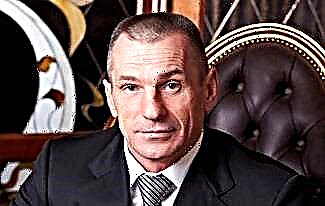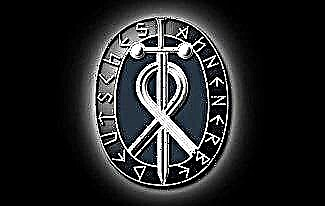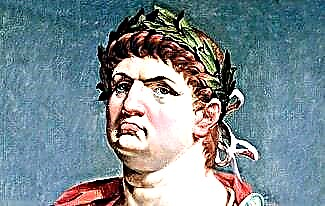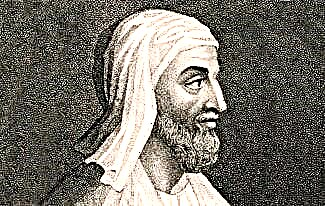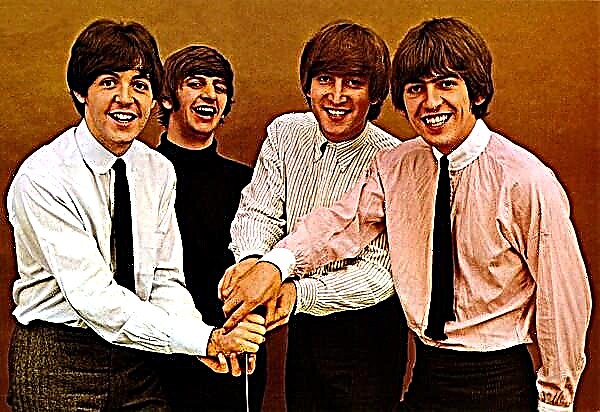Max Karl Ernst Ludwig Planck - German theoretical physicist, founder of quantum physics. Laureate of the Nobel Prize in Physics (1918) and other prestigious awards, a member of the Prussian Academy of Sciences and many other foreign scientific societies.
There are many interesting facts in the biography of Max Planck that you probably don't know about.
So, here is a short biography of Max Planck.

Biography of Max Planck
Max Planck was born on April 23, 1858 in the German city of Kiel. He grew up and was brought up in a family belonging to an old noble family.
Max's grandfather and great-grandfather were professors of theology, and his paternal uncle was a famous lawyer.
The father of the future physicist, Wilhelm Planck, was a professor of jurisprudence at the University of Keele. Mother, Emma Patzig, was the daughter of a pastor. In addition to Max, the couple had four more children.
Childhood and youth
The first 9 years of his life Max Planck spent in Kiel. After that, he and his family moved to Bavaria, as his father was offered a job at the University of Munich.

Soon the boy was sent to study at the Maximilian Gymnasium, which was considered one of the most prestigious educational institutions in Munich.
Planck received high marks in all disciplines, being in the ranks of the best gymnasium students.
At that moment, Max's biographies were deeply interested in the exact sciences. He was greatly impressed by the mathematics teacher Hermann Müller, from whom he learned about the law of conservation of energy.
An inquisitive student was carried away by the laws of nature, philology, and also found pleasure in music.
Max Planck sang in the boys' choir and played the piano well. Moreover, he became seriously interested in music theory and tried to compose musical works.
After graduating from high school, Planck successfully passed the exams at the University of Munich. At the same time, the young man continued to study music, often playing the organ in a local church.
Before long, Max even served as a choirmaster in the student choir and conducted a small orchestra.
On the recommendation of his father, Planck took up the study of theoretical physics, under the leadership of Professor Philip von Jolly. An interesting fact is that Jolly advised the student to abandon this science, since, in his opinion, it was about to exhaust itself.
Nevertheless, Max firmly decided to thoroughly understand the structure of theoretical physics, in connection with which he began to study various works on this topic and attend lectures on experimental physics by Wilhelm von Betz.
After meeting with renowned physicist Hermann Helmholtz, Planck decides to continue his studies at the University of Berlin.
During this period of biography, the student attends lectures by mathematician Karl Weierstrass, and also explores the works of professors Helmholtz and Kirgoff. Later, he studied the work of Claesius on the theory of heat, which prompted him to seriously engage in the study of thermodynamics.
The science
At the age of 21, Max Planck was awarded a doctorate after defending a dissertation on the second law of thermodynamics. In his work, he managed to prove that with a self-sustaining process, heat is not transferred from a cold body to a warmer one.
Soon, the physicist publishes a new work on thermodynamics and receives the position of a junior assistant at the physics department of a Munich university.

A few years later, Max becomes an adjunct professor at the University of Kiel and then at the University of Berlin. At this time, his biographies are gaining more and more recognition among world scientists.
Later, Planck was trusted to head the Institute for Theoretical Physics. In 1892, the 34-year-old scientist becomes a full-time professor.
After that, Max Planck deeply studies the thermal radiation of bodies. He comes to the conclusion that electromagnetic radiation cannot be continuous. It flows in the form of individual quanta, the size of which depends on the emitted frequency.
As a result, the physicist derives a formula for the distribution of energy in the spectrum of an absolute black body.

In 1900, Planck made a report on his discovery and thereby became the founder - quantum theory. As a result, after a few months, on the basis of his formula, the values of the Boltzmann constant are calculated.
Max manages to determine Avogadro's constant - the number of atoms in one mole. The discovery of the German physicist allowed Einstein to further develop quantum theory.
In 1918 Max Planck was awarded the Nobel Prize in Physics "in recognition of the discovery of energy quanta."
After 10 years, the scientist announced his resignation, continuing to work with the Kaiser Wilhelm Society for Basic Sciences. A couple of years later, he became its president.
Religion and philosophy
Planck was educated in the Lutheran spirit. Before dinner, he always said a prayer and only then proceeded to eat.
An interesting fact is that from 1920 until the end of his days, the man served as a presbyter.
Max believed that science and religion play a big role in the life of mankind. However, he opposed their unification.
The scientist publicly criticized any form of spiritualism, astrology and theosophy, which at that time enjoyed great popularity in society.
In his lectures, Planck never mentioned the name of Christ. Moreover, the physicist emphasized that although from his youth he was "in a religious mood", he did not believe "in a personal, let alone a Christian god."
Personal life
Max's first wife was Maria Merck, whom he had known since childhood. Later, the couple had 2 sons - Karl and Erwin, and 2 twins - Emma and Greta.
In 1909, Planck's beloved wife dies. A couple of years later, the man marries Margarita von Hesslin, who was the niece of the late Maria.
In this union, the boy Herman was born to Max and Margarita.
Over time, in the biography of Max Planck, there is a series of tragedies associated with his close relatives. His first-born Karl dies in the midst of the First World War (1914-1918), and both daughters die in childbirth between 1917-1919.
The second son from his first marriage was sentenced to death in 1945 for participating in a conspiracy against Hitler. And although the eminent physicist did his best to save Erwin, nothing came of it.

Planck was one of the few people who defended Jews when the Nazis were in power. During a meeting with the Fuhrer, he persuaded him to abandon the persecution of this people.
Hitler, in his usual manner, expressed physics to his face, everything he thinks about the Jews, after which Max never raised this topic again.
At the end of the war, Planck's home was destroyed during one of the bombing raids, and the scientist himself miraculously survived. As a result, the couple were forced to flee to the forest, where they were sheltered by a milkman.
All these events seriously crippled the man's health. He suffered from spinal arthritis, which made it extremely difficult for him to move.
Thanks to the efforts of Professor Robert Pohl, American soldiers are sent for Planck and his wife and help him move to safe Göttingen.
After spending several weeks in the hospital, Max began to feel much better. After discharge, he again began to engage in scientific activities and lecturing.
Death
Shortly before the death of the Nobel laureate, the Kaiser Wilhelm Society was renamed the Max Planck Society for its contribution to the development of science.
In the spring of 1947, Planck gave his last lecture to the students, after which his health became worse and worse every day.
Max Planck died on October 4, 1947 at the age of 89. The cause of his death was a stroke.
Photo by Max Planck




